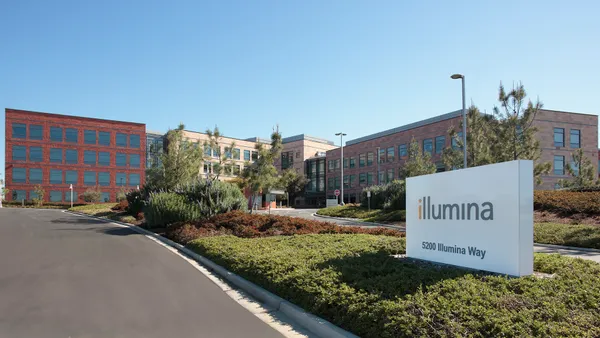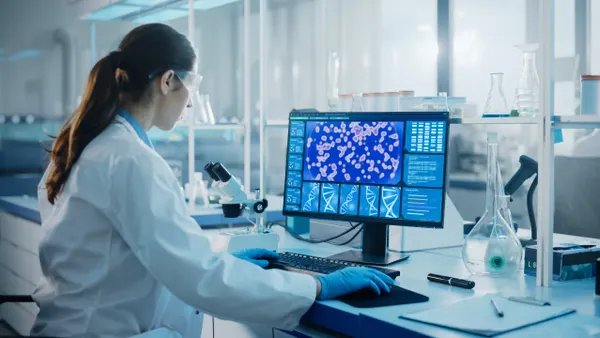Dive Brief:
-
Verily has published details of a machine learning approach that may support development of new diagnostic tools.
-
The approach, DeepMass, is designed to improve characterization of disease-relevant protein profiles by tackling a limitation on the use of mass spectrometry.
-
In early tests, DeepMass was more accurate than an existing prediction model and expanded the coverage of known biomarkers when applied to clinical data.
Dive Insight:
Verily, the Alphabet unit formerly known as Google Life Sciences, measures protein profiles to find new disease biomarkers in a range of its programs, including The Project Baseline Health Study that has attracted the support of Pfizer and other drugmakers.
These searches for biomarkers use a form of protein mass spectrometry designed to increase the accuracy of protein identification and quantification. The downside is the approach, known as data independent acquisition, relies on the development of experimentally determined spectral libraries. Development of the libraries is both time and resource-intensive.
To improve the process, Verily partnered with the Max Planck Institute of Biochemistry and Google to explore the use of machine learning. The exploration was underpinned by a belief that computation could accelerate the generation of spectral libraries and thereby improve analysis of protein datasets.
Verily described the program and its results in a paper published in Nature Methods. The authors write that DeepMass delivered "markedly better" results than MS2PIP, an existing prediction model, when used to predict peptide mass spectra. DeepMass achieved a score just short of the theoretical maximum imposed by the variability of the dataset.
Verily made a DeepMass tool available as a service using the Google Cloud Machine Learning Engine prior to the publication of the Nature Methods paper. By sharing the tool, Verily said it can help developers of diagnostics characterize disease-relevant protein profiles.
The sharing of the tool opens another front in Verily’s expansive life sciences R&D operation, which encompasses a blood glucose monitoring pact with Dexcom, a robotic surgery joint venture with Johnson & Johnson and a host of other initiatives.
Increasing the accuracy of peptide mass spectra predictions could enable discovery of hard-to-spot links between biomarkers and disease. When applied to clinical data, DeepMass expanded the "coverage of known biomarkers by more than two fold," Verily wrote in a blog post about the news.











